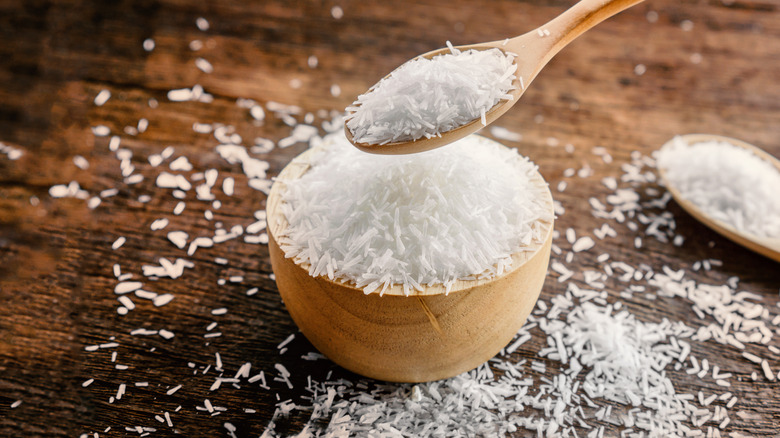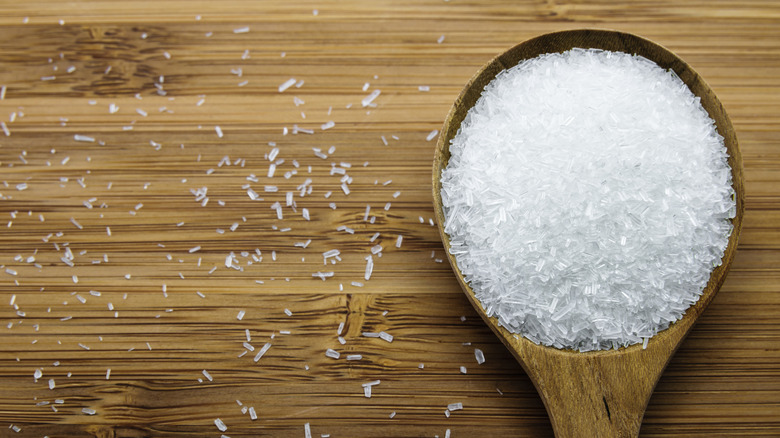MSG Is Having A Revival Like No Other
Monosodium glutamate, better known as MSG, has been the victim of one of the culinary world's most unjustified smear campaigns. MSG is basically just a flavor enhancer, much, in the same way, table salt is. Despite that, it has gained one of the culinary world's most undeserved negative reputations. Thankfully, things seem to be turning around for the better. A study by Mintel (via BioSpace) finds that consumers now view monosodium glutamate more positively than ever before. Around 75% of the global social media conversation is now far more likely to praise MSG than rant about its negative effects. Social media accounts such as Know MSG have even popped up, dedicated to debunking the myths around MSG.
According to Insider, research from 1969, that kickstarted the misconceptions about MSG, was rooted in a deeply anti-Chinese sentiment. The research suggested MSG caused a host of symptoms including headaches and chest pains. At the time, MSG symptoms were referred to as Chinese Restaurant Syndrome despite the fact that MSG wasn't even patented by a Chinese person. MSG was patented in 1909 by a Japanese chemist named Kikunae Ikeda, who uncovered the chemical basis for taste called "umami".
Asian-American chef J. Kenji López-Alt called out the legitimacy of this research, stating, "Though no actual evidence was presented, the idea took off and went viral (even before the internet!), and for decades MSG was blamed for everything from migraines and numbness to bloat and heart palpitations." In essence, the fight against anti-MSG sentiment is also a fight against widespread misinformation.
MSG deserves the culinary renaissance it's getting
Spearheading the fight against MSG's unearned reputation of negativity are content creators and influencers such as Adam Ragusea and TED-Ed. Both released videos that provide a more practical and positive view of the ubiquitous umami booster. Far from biased, these content creators are giving a more nuanced perspective to MSG. They explained that MSG is harmless for most of the population, and is a wonderful flavor booster for unexciting food. That being said, they also make sure to point out that a very small subset of the population can have negative reactions to MSG, albeit none to the extent that the old myths claimed. They also point out how MSG can make food that's bad for you taste better, which is an indirect side effect but nonetheless worth mentioning.
The importance of these influencers in the fight for MSG's reputation cannot be understated. Science has always known that MSG wasn't the horrible culinary villain it was portrayed as. For instance, the U.S. Food & Drug Administration ruled MSG safe to eat. False assumptions, unfortunately, exist everywhere, even in the universal language that is food. Content creators are capable of succinctly and accurately representing science in a way that appeals to the general public.

